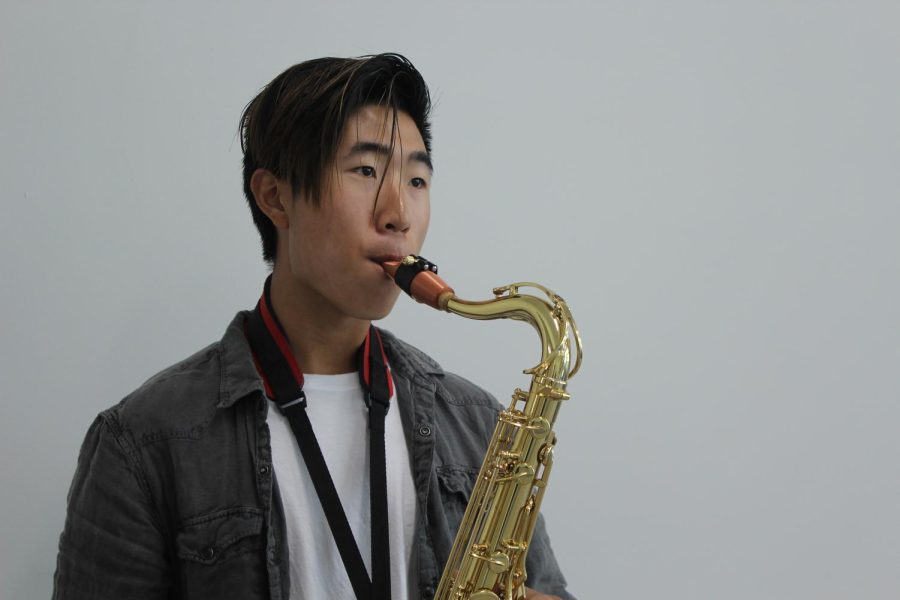When a person begins their journey into music, many often encourage them to stay within their chosen genre. However, senior George Huang, who began to play the acoustic guitar at age 10, has a different approach to his music journey.
“I got into music at a really young age,” Huang said. “My parents introduced me to different genres of music and it really helped shape my personality. I now mainly play guitar, both alto and tenor saxophone as well as drums and bass.”
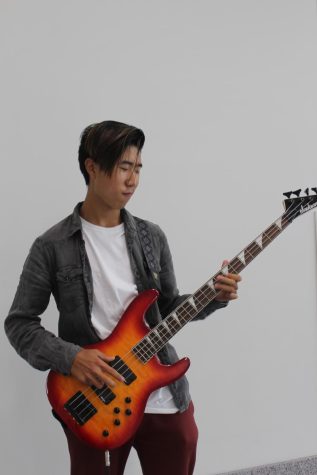
Huang said he has explored many different genres in the music world.
“I make music in a genre that is most accessible to people such as pop. I have played and done gigs with jazz, classical band, orchestra and some jazz fusion as well.” Huang said.
Huang is not the only one who has expanded his horizons in music. Sophomore Andrew Kemer said he has had a similar experience to Huang.
“I play classical and jazz music on my trumpet,” Kemer said. “My favorite, though, is in marching band when we infuse classical music into different genres.”
However, there are still some challenges that students face when trying to expand their music horizons.
Huang said, “Usually, I like to be hopeful and say that every instrument can fit into every situation. However, there are specific genres that have been built off of a precedence of certain instruments. Some instruments have been confined to specific genres. However, I want to encourage people to break out of the main genre for that specific instrument. To be honest, a lot of the instrumentation that we use in a classical or pop setting, specific instruments can be injected into other genres which can lead to really promising results.”
One big part of music that doesn’t change, according to Huang, is practice.
“Practice really is a grueling and time-consuming activity, but it is the most important part of music,” Huang said. “Giving yourself practice while still having that same enthusiasm for music is a great way to improve your musical abilities.”
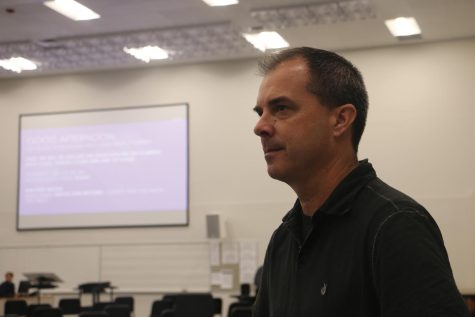
Director of Bands Michael Pote said he agrees that choosing to learn and focus on multiple genres of music lead a student to reach higher levels in playing their instrument.
“Students who chose to do multiple ensembles– do three or four, and like, you said, different styles of music, are, first of all, very dedicated to (their instrument) in the first place,” Pote said.
He said students who chose to dive deeper to the different styles and genres of music provide dedication to their instrument. They choose to be in the jazz band, orchestra, concert band and then take private lessons on top of it all. Pote said these students put in most of their time into their instrument. But, this can sometimes be a challenge when balancing school work.
“Is it a challenge for them academically because of time commitment and stuff? Probably,” he said. “But they also end up being some of the more high-achieving students we have.”
However, the choice to commit all the time to the instrument is left to the student.
Pote said, “Someone who plays jazz then plays orchestra and then plays concert literature and then private lessons and solo literature is someone who is growing four times as much and four times as quickly than someone who just plays one.”
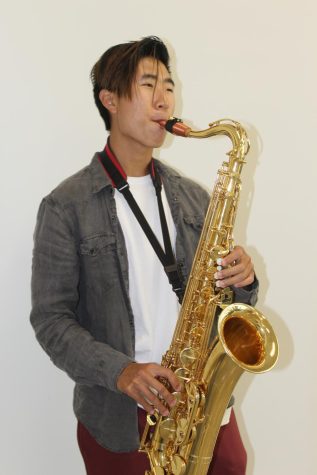
For his part, Huang said that he always likes to mix things up all the time like throwing in a classical violinist into a pop setting and that leads to more fun because it confronts him with an uncomfortable situation.
“You’re just trying to make something new,” he said.
Pote explained how a student involved in multiple genres of music never has a reason to be bored with what they’re doing.
“It’s never boring,” he said. “It’s never that we’re doing the same thing the entire year.”
Some students said they find value in sticking with just one genre of music. Sophomore Adam Madni is one of them.
“I feel like if you dig deeper into a specific genre of music, you can connect with lots of new people,” Madni said. “The feeling of collaborating with each other is an incredibly fun process that I look forward to.”
Huang said he agrees that limitation within one musical genre can help to expand your musical abilities.
“A lot of my idols always say how limitation breathes creativity. It’s not stressful, you’re just trying to create something new,” he said.
Pote compared the ability to play multiple genres to speaking multiple languages.
“We’ve had a student here who could speak five languages before,” he said. “Being able to speak multiple languages musically is, honestly, helpful in terms of developing skills and understanding the historical aspect of music and the development of different styles.”
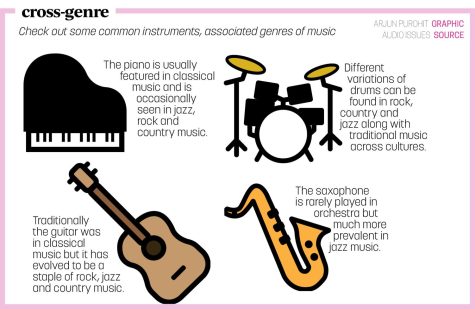
Huang said, “(It’s similar to) how people say speaking a different language immerses you in its culture. Picking up a different instrument and having a certain fluidity, it’s like you’re jumping through different cultures of music.”































![What happened to theater etiquette? [opinion]](https://hilite.org/wp-content/uploads/2025/04/Entertainment-Perspective-Cover-1200x471.jpg)














































![Review: “The Immortal Soul Salvage Yard:” A criminally underrated poetry collection [MUSE]](https://hilite.org/wp-content/uploads/2025/03/71cju6TvqmL._AC_UF10001000_QL80_.jpg)
![Review: "Dog Man" is Unapologetically Chaotic [MUSE]](https://hilite.org/wp-content/uploads/2025/03/dogman-1200x700.jpg)
![Review: "Ne Zha 2": The WeChat family reunion I didn’t know I needed [MUSE]](https://hilite.org/wp-content/uploads/2025/03/unnamed-4.png)
![Review in Print: Maripaz Villar brings a delightfully unique style to the world of WEBTOON [MUSE]](https://hilite.org/wp-content/uploads/2023/12/maripazcover-1200x960.jpg)
![Review: “The Sword of Kaigen” is a masterpiece [MUSE]](https://hilite.org/wp-content/uploads/2023/11/Screenshot-2023-11-26-201051.png)
![Review: Gateron Oil Kings, great linear switches, okay price [MUSE]](https://hilite.org/wp-content/uploads/2023/11/Screenshot-2023-11-26-200553.png)
![Review: “A Haunting in Venice” is a significant improvement from other Agatha Christie adaptations [MUSE]](https://hilite.org/wp-content/uploads/2023/11/e7ee2938a6d422669771bce6d8088521.jpg)
![Review: A Thanksgiving story from elementary school, still just as interesting [MUSE]](https://hilite.org/wp-content/uploads/2023/11/Screenshot-2023-11-26-195514-987x1200.png)
![Review: "When I Fly Towards You", cute, uplifting youth drama [MUSE]](https://hilite.org/wp-content/uploads/2023/09/When-I-Fly-Towards-You-Chinese-drama.png)
![Postcards from Muse: Hawaii Travel Diary [MUSE]](https://hilite.org/wp-content/uploads/2023/09/My-project-1-1200x1200.jpg)
![Review: "Ladybug & Cat Noir: The Movie," departure from original show [MUSE]](https://hilite.org/wp-content/uploads/2023/09/Ladybug__Cat_Noir_-_The_Movie_poster.jpg)
![Review in Print: "Hidden Love" is the cute, uplifting drama everyone needs [MUSE]](https://hilite.org/wp-content/uploads/2023/09/hiddenlovecover-e1693597208225-1030x1200.png)
![Review in Print: "Heartstopper" is the heartwarming queer romance we all need [MUSE]](https://hilite.org/wp-content/uploads/2023/08/museheartstoppercover-1200x654.png)



